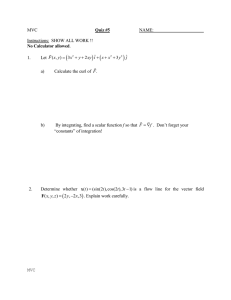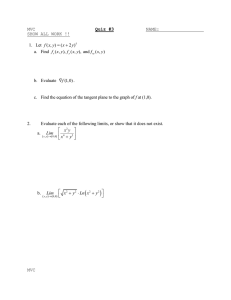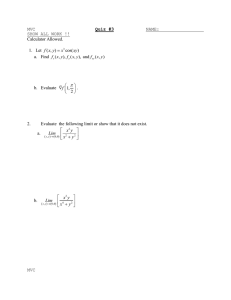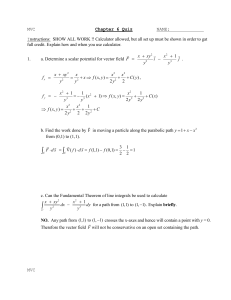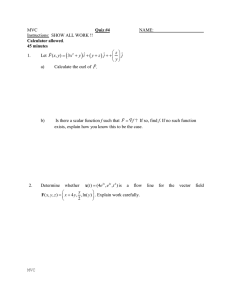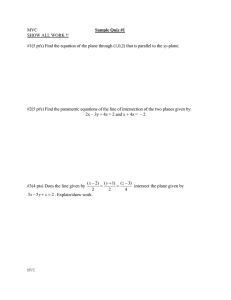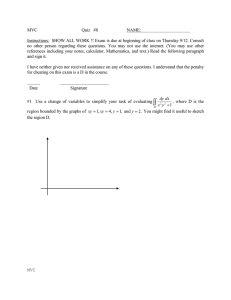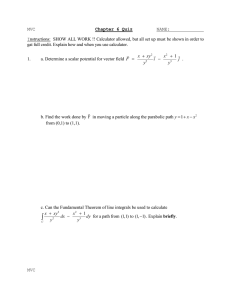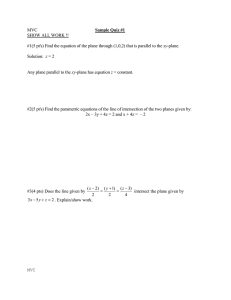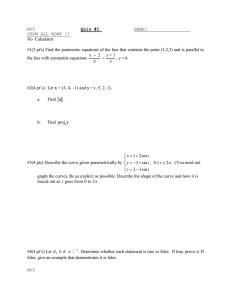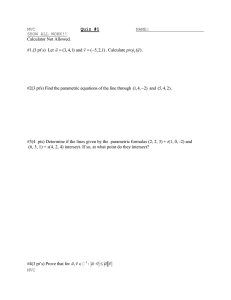Quiz #3 Sec 1 key
advertisement
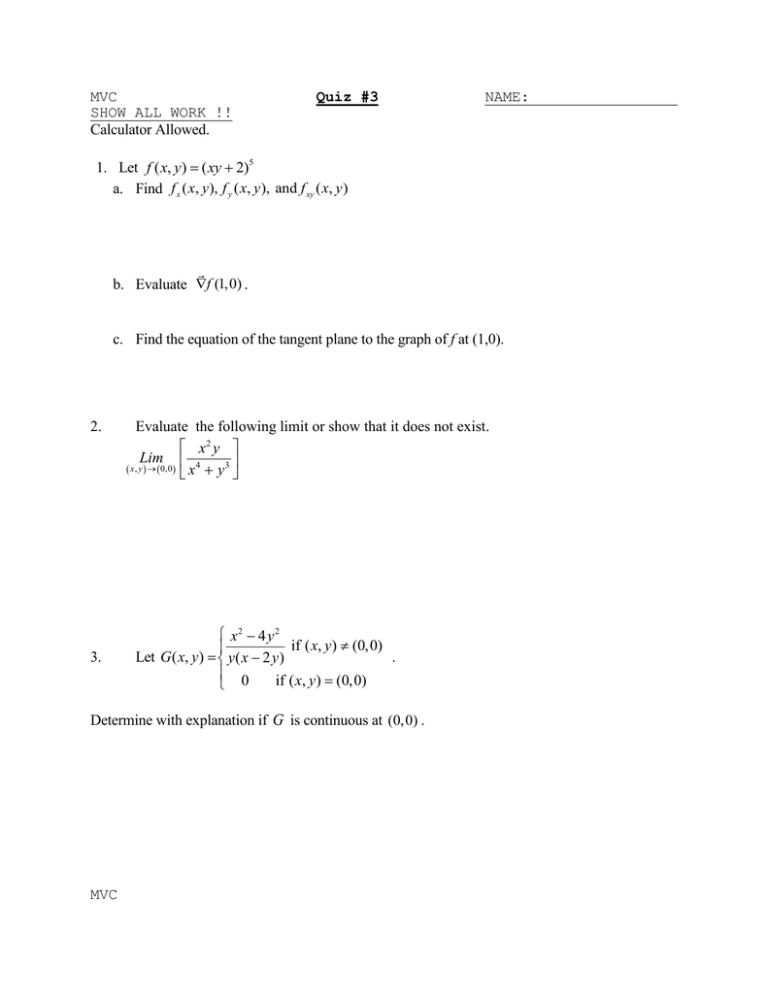
MVC SHOW ALL WORK !! Calculator Allowed. Quiz #3 NAME: 1. Let f ( x, y) ( xy 2)5 a. Find f x ( x, y ), f y ( x, y ), and f xy ( x, y ) b. Evaluate f (1,0) . c. Find the equation of the tangent plane to the graph of f at (1,0). 2. 3. Evaluate the following limit or show that it does not exist. x2 y Lim x , y 0,0 x 4 y 3 x2 4 y 2 if ( x, y) (0,0) Let G ( x, y) y ( x 2 y ) . 0 if ( x, y ) (0,0) Determine with explanation if G is continuous at (0,0) . MVC 4. Find the directional derivative of F ( x, y) x 2 xy in the direction of the vector v 3i 4 j , at the point 1,3. w at the point (r , s) (1, 1) if w x 2 y y 2 z and x 2r s, y r 2s, and z 2rs . s 5. Evaluate 6. Find a tangent plane to the surface which is defined implicitly by the equation xy 2 yz 2 zx 2 3 at the point (1, 2,1) . MVC For the contour map for z f ( x, y ) shown below, estimate each of the following quantities. Explain briefly how you are getting your answer. (a) f x (1,2) and f y (1, 2) (b) f (1, 2) (c) Du f (1,2) , where u is a unit vector in the direction of f (1, 2) (d) Sketch the vector f (1, 2) on the contour map for f using (1,2) as the initial point. (e) Sketch a unit vector v with initial point (1,2) such that Dv f (1,2) 0 . -1 0 1 2 3 4 5 MVC Suppose that you have a function f : 7. ( x, y ) (1, 2) (1.05, 2) (1,1.99) 2 with table of values given below: f ( x, y ) 4 4.1 4.01 a. Estimate the values of f x (1,2) and f y (1, 2) . b. Give an approximation for the tangent plane to the graph of f at (1,2). c. Use the result from b. to approximate f (1.01, 2.01) d. Under what conditions on f is the approximation from b. a “good” approximation? Explain. u w and y (u , v, w) , then v v z z z u v w 0 u v w 9. Prove that if z f ( x, y ), with x(u, v, w) MVC Concepts 8. 2 1 2 if ( x, y ) (0,0) x y sin 2 2 Let f ( x, y ) x y 0 if ( x, y ) (0,0) a. Determine the partials of f at (0,0) , that is, f x (0,0) and f y (0,0) . b. Are f x and f y continuous at (0,0)? You may discuss the continuity of only one of these partials, as the other will be analogous. Explain/show work. c. Determine whether f is differentiable at (0,0) . Again, Explain/show work. MVC
